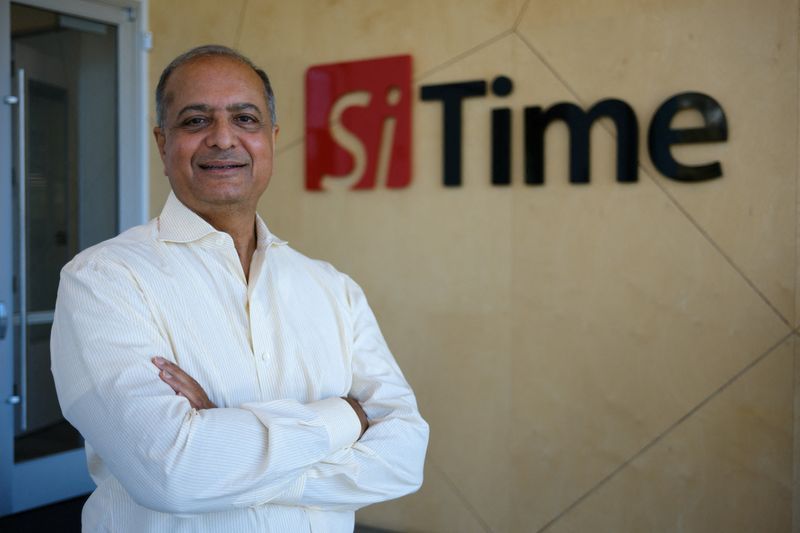SiTime’s Bold Entry into the Wearable Tech Market with Titan Chip
In an exciting development for the tech industry, SiTime, a chip company based in Santa Clara, California, has just launched its latest innovation— the Titan chip. This new product is poised to help the company tap into a sizzling $4 billion market, specifically targeting the burgeoning field of wearable electronic devices. With sales just over $200 million last year, SiTime is one of the few players focusing solely on timing chips—an often overlooked but crucial component in the tech ecosystem.
The Role of Timing Chips
Timing chips play a vital role in the functioning of complex electronic devices. Think of them as conductors in an orchestra, ensuring that all the various components work in perfect harmony. Although SiTime keeps its customer list under wraps, industry analysts have found its chips integrated into high-profile products, including Apple iPhones and Nvidia’s networking switches. This level of engagement with leading tech companies speaks volumes about the reliability and significance of SiTime’s offerings.
The Titan Chip: A Revolutionary Achievement
The Titan chip, named for its impressive miniaturization, represents a significant leap in chip technology. By reducing the size of a component that previously resembled a grain of rice down to the size of a pinhead, SiTime is not just creating smaller chips; it’s revolutionizing the way we think about chip design. This major reduction in size does not sacrifice quality—instead, it enhances durability. Unlike older technologies that relied on fragile quartz crystals, the Titan chip is built on a silicon-based framework, making it more robust and resistant to damage.
Key Features and Benefits
Rajesh Vashist, SiTime’s CEO, expressed enthusiasm for their latest achievement, underscoring the chip’s key features: it is "highly ruggedized, super-low power, and super small in size." These characteristics are particularly significant for wearable devices, where space is limited and battery life is essential.
The lower power consumption is a game changer for engineers who strive to make devices that are not just compact but also energy-efficient. In a world where consumers increasingly demand longer battery life from their gadgets, the Titan chip positions SiTime at the forefront of this important trend.
Applications in Wearable Technology
According to Bob O’Donnell, Chief Analyst at TECHnalysis Research, the potential applications for the Titan chip are vast. Devices such as wireless earbuds, smart glasses, and fitness trackers could all benefit from this innovative technology. In wearables, size and battery performance are paramount—features that Titan aims to optimize.
As O’Donnell pointed out, the new chip does not just participate in the power consumption conversation; it redefines it. “These are all things that sip on power as it is," he noted, highlighting how even a minor reduction in energy use could contribute to the broader trend of miniaturization in technology.
The Bottom Line
SiTime’s Titan chip embodies a blend of innovation and practicality. It stands to not just influence the technical specifications of wearable devices but also enhance the user experience by providing more reliable, durable, and energy-efficient technology. As the market for wearables continues to grow, companies like SiTime are strategically positioning themselves to meet the demands of an increasingly tech-savvy consumer base.
This evolution in chip design may be something we don’t see directly, but it impacts every aspect of the devices we cherish, making our lives a little more connected and a lot more efficient.



